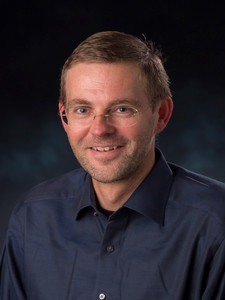OSE Seminar by Dr. Markus Raschke on Ultrafast nano-imaging resolving structure, coupling, and dynamics of matter on its natural length and time scales
Departmental News

Posted: December 3, 2024
Date: Thursday, December 05, 2024
Time: Noon to 1:10 PM
Location: PAIS Room 2540 and Zoom
Speaker:
Dr. Markus Raschke, Department of Physics and JILA, University of Colorado, Boulder, USA
Abstract:
Understanding and ultimately controlling the properties of matter, from molecular to quantum systems, requires imaging the elementary excitations on their natural time and length scales. To achieve this goal, we developed scanning probe microscopy with ultrafast and shaped laser pulse excitation for multiscale spatio-temporal optical nano-imaging. In corresponding ultrafast movies, we resolve the fundamental quantum dynamics from the few-femtosecond coherent to the thermal transport regime. I will discuss specific examples visualizing in space and time the nanoscale heterogeneity in competing structural and electronic dynamic processes in matter. In photovoltaic perovskites with far-from equilibrium excitation we visualize the polaron dynamics and its spatial, temporal and fluence dependence on the nanoscale, reflecting the elementary processes underling their photoresponse. In the extension to coherent nonlinear nanoimaging, we resolve competing ultrafast intra- and interlayer dynamic processes in graphene and 2D semiconductors and their heterostructurs. As a perspective I will show that we are reaching the ultimate goal of functional imaging and control, to link macroscopic properties to microscopic interactions in materials at their fundamental spatio-temporal scales.
Biography:
Markus Raschke is professor at the Department of Physics and JILA at the University of Colorado at Boulder. His research is on the development and application of nano-scale nonlinear and ultrafast spectroscopy to control the light-matter interaction on the nanoscale. These techniques allow for imaging structure and dynamics of molecular and quantum matter with nanometer spatial resolution. He received his PhD in 2000 from the Max-Planck Institute of Quantum Optics and the Technical University in Munich, Germany. Following research appointments at the University of California at Berkeley, and the Max-Born-Institute in Berlin, he became faculty member at the University of Washington in 2006, before moving to Boulder in 2010. He is fellow of the Optical Society of America, the American Physical Society, he American Association for the Advancement of Science, and the Explorers Club.
